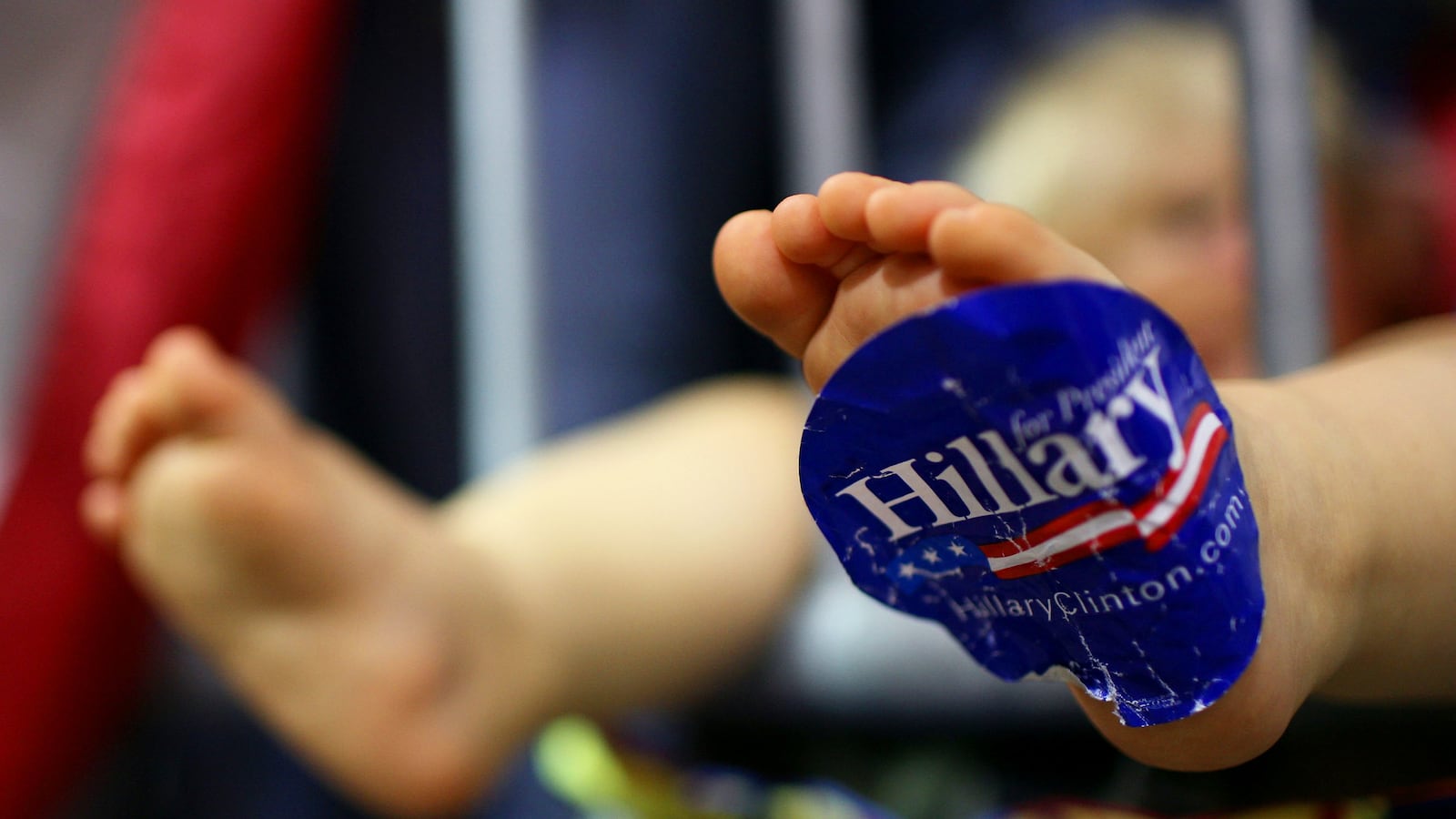OK, I get it. The arrival of Baby Clinton-Mezvinsky will be a boon to Hillary Clinton’s presumed candidacy because it will humanize her, softening what remains of her Lady Macbeth image. It will prove so helpful, according to one radio flannel-mouth, that it was likely an act of strategic planning.

No, wait. It will seriously, perhaps fatally, damage her prospects, because the “grandmother” label will remind people that she will be 69 in 2016; grandmothers, as everyone knows, spend their days mall-walking and playing the slots at nearby casinos.
Hold it. Grandchild Clinton may mean that Hillary Clinton won’t run for president at all, preferring to spend her days nurturing, rather than admiring the butter cow at the Iowa State Fair.
Even in this Age of Permanent Gas-baggery, when the signal-to-noise ratio is approaching the win-loss ratio of the 1962 Mets, the mindlessness of the Baby Clinton conversation has made CNN’s search for the Malaysian airplane look like a model of thoughtful analysis. I would cheerfully give a significant three-figure sum to any talking head who, when asked to opine on the earthshaking consequences of Chelsea’s pregnancy, would channel John McEnroe: “You cannot be serious!”
Spend about, oh, 45 seconds thinking about what you know about politics—not the politics of 1964, but the politics of 2014. Twenty women sit in the U.S. Senate, three sit on the U.S. Supreme Court, two have been major party nominees for vice president, and in 2008 Hillary Clinton ran a close race with Barack Obama for her party’s nomination. Is it not at least conceivable that the American electorate has changed the way it views women candidates?
And with a population and an electorate that grows steadily older, is Clinton’s age—assuming she is healthy and energetic—really going to be a target of opportunity for a Republican Party that has nominated Ronald Reagan (69), Bob Dole (73), and John McCain (72) in recent years?
As for the fiendishly clever strategic planning involved, wouldn’t it have been shrewder for the Clintons to announce a birth, say, a day or two before the Iowa caucuses in 2016, rather than a year and change before anyone gets to vote?
You can measure the likely impact of ToBeNamedLater Clinton-Mezvinsky by looking back at one time when the birth of a child really did have a profound impact on American politics.
In 1964, the race for the Republican nomination came down to a one-on-one fight between New York Gov. Nelson Rockefeller and Arizona Sen. Barry Goldwater in the June 2 winner-take-all California primary. All through the campaign, Rockefeller had been carrying the burden of a 1963 remarriage to Margarita “Happy” Murphy, a women 15 years his junior who had given over her four children to the custody of her ex-husband.
Such behavior was enough for Sen. Prescott Bush of Connecticut, the father of future President George H.W. Bush and grandfather of President George W. Bush, to ask publicly: ”Have we come to the point in our life as a nation where the governor of a great state—one who perhaps aspires to the nomination for president of the United States—can desert a good wife, mother of his grown children, divorce her, then persuade a young mother of four youngsters to abandon her husband and their four children and marry the governor?”
In the days before the primary, Rockefeller held on to a small lead. Then, three days before the primary, Happy Rockefeller gave birth to a son, Nelson Jr. That put the story of the divorce and remarriage on the front page, and Goldwater won the primary by a 51-49 percent margin. The 86 delegates he won essentially sealed his victory.
(The ill will among some Republicans remained: When Rockefeller addressed the GOP convention in San Francisco to appeal for a platform plank denouncing extremism, one delegate, according to Theodore H. White, repeatedly yelled at him: “You lousy lover! you lousy lover!”)
What’s the lesson here? If Hillary Clinton divorces Bill, marries a man a few decades her junior, and declares that she plans to spend no time at all with her grandchild, then yes—there will be serious political fallout.
Until then, I’m going back to see what happened to that plane.





